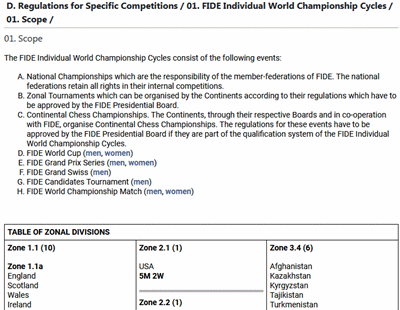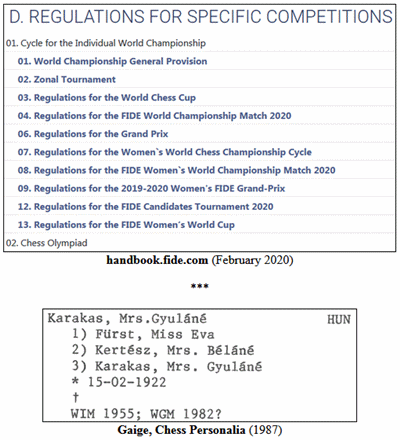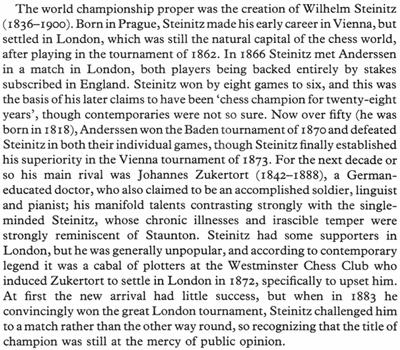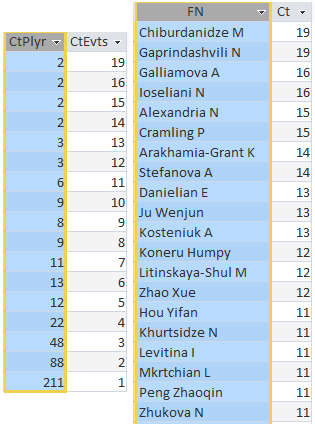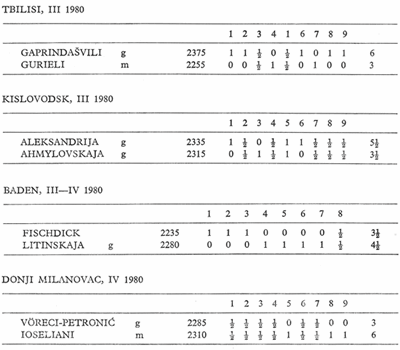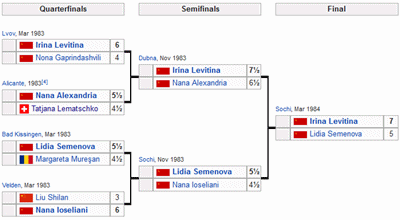Last year I wrote a couple of posts on aspects of German master Adolf Anderssen's career:-
While I was working on those, I started to wonder how the list of early, unofficial World Champions originated.
I imagine that someone started with Wilhelm Steinitz, the first official World Champion, then worked backwards. If so, who created the list and when?
E.G.Winter's, editor of the book 'World Chess Champions' (Pergamon Press, Oxford, 1981), included 16 chapters by 12 contributors. After the first chapter, titled 'Early times', the book had chapters on Staunton, Anderssen, and Morphy -- in that order -- followed by the World Champions that are usually numbered 1 to 12, i.e. no.1 Steinitz, no.2 Lasker, ... through no.12 Karpov.
The 'Early times' chapter was written by W.H.Cozens, who mentioned Ruy Lopez, Paolo Boi, Leonardo da Cutri, Greco, Philidor, and Deschapelles, all chronologically.
To these he added Petroff, Cochrane, McDonnell, and La Bourdonnais.
Kasparov, in his five part 'My Great Predecessors', had 'Chess before Steinitz' as the first chapter of Part I. He mentioned
Greco, Philidor, Deschapelles, Lewis, La Bourdonnais, McDonnell, Staunton, Saint-Amant, Anderssen, Kieseritzky, Morphy, Kolisch, Zukertort, and Paulsen.
In more recent times, others have carried the list even further back.
Wikipedia's
World Chess Championship
lists 14 'Leading players before the World Chess Championships' from Ruy Lopez to Zukertort. Steinitz is included in that list (1866–1886), as well as under
'Undisputed world champions (1886–1993)', where his reign is determined by official matches (1886–1894).
Anderssen is listed twice (1851–1858 & 1862–1866), where the intervening period (1858–1862) is assigned to Morphy.
Wikiwand's
List of World Chess Champions
lists 19 players under 'Some players and authors before 1821', starting with 'Francesch Vicent (author)' through Deschapelles.
Under 'World Champions pre-FIDE', Wikiwand lists 10 players from La Bourdonnais to Euwe. The list might be considered the equivalent of an official list of unofficial World Champions, although the inclusion of Saint-Amant (1840–1843) renders even this questionable.
Therein lies a problem. Working backwards from Steinitz requires concrete events to pinpoint a transition from one 'World Champion' to the next -- but no one beat La Bourdonnais and no one beat Morphy.
The 1834 La Bourdonnais - McDonnell match had the best player from France against the best player from Britain; likewise 1843 Staunton - Saint-Amant.
Anderssen beat Staunton in the penultimate round of the 1851 London tournament, winning the event in the last round, then lost a match to Morphy in 1858.
After Morphy's withdrawal from play, Anderssen won the 1862 London tournament, to regain his place on the list until losing a match to Steinitz in 1866.
Those six years -- 1834, 1843, 1851, 1858, 1862, and 1866 -- are the same years that appear in the timespans of unofficial World Champions.
After 1866, Steinitz played a number of matches with other players. Those matches are considered unofficial World Championships, but what about the tournaments that were held in the period 1866 to 1886. The tournaments 1851 London and 1862 London are both used to assign transition. Why, in 1866, do we start to ignore tournaments and count only matches?
On my page
World Chess Championship : Pre-FIDE Events,
I list 1883 London as the last of the 'Unofficial events'. That is my decision and I don't believe it is confirmed by any published chess historians.
Gelo's 'Chess World Championships' doesn't include the tournament, although the book does include two Steinitz matches won by lopsided scores.
Are there other tournaments in the period 1866-1886 that might be considered unofficial events? If so, which ones?
To answer this question I looked at Anderssen's career in Winter's 'World Chess Champions'. Here is the book's summary of Anderssen's record, slightly reformatted to fit into a single image.
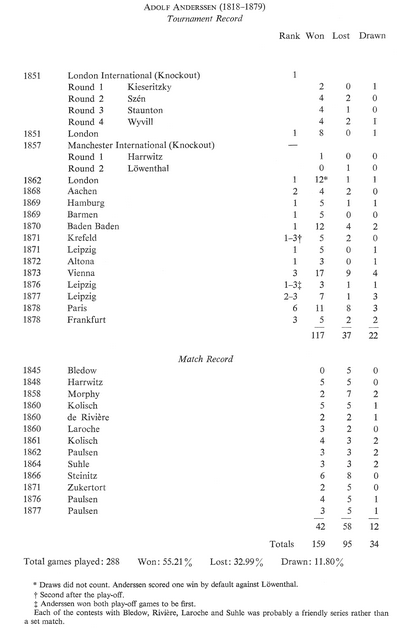
Two large tournaments stand out as worthy of further attention. Here are links to their Wikipedia pages:-
-
1870 Baden-Baden
•
First was Anderssen, 1.5 points ahead of second place Steinitz. Anderssen beat Steinitz in both of their individual games.
-
1873 Vienna
•
According to an unusual scoring system, Steinitz and Blackburne finished tied for first and second, ahead of third place Anderssen. This time Steinitz beat Anderssen in both of their individual games.
Are these events less worthy for consideration as unofficial World Championships than two matches that appear on everyone's list?:-
- 1872 Steinitz - Zukertort, with a score of +7-1=4; or
- 1876 Steinitz - Blackburne, +7-0=0
After all...
- 1866 Steinitz - Anderssen, +8-6=0
...is an 'official' unofficial match, where the score was tied at six each after 12 games. Have later unofficial events been chosen because they best fit the conclusion? If so, chess history has sacrificed consistency in favor of clarity.
***
While I was preparing this post, I noted several points worth mentioning that don't fit easily into the above narrative.
Kasparov mentions a match 1868 Anderssen - Zukertort, which is not listed in Winter's book. The chapter on Anderssen was written by G.H.Diggle.
Nearly 20 years ago I used another table from Winter's book in
Howard Staunton's Tournament, Match, and Exhibition Record (1840-1866)
I was astounded to see that the links to Bookfinder.com still work. I was also astounded to see the prices some booksellers are asking.
What does H.J.R.Murray have to say about this subject. His 'History of Chess' first appeared in the early years of the official World Championship.
